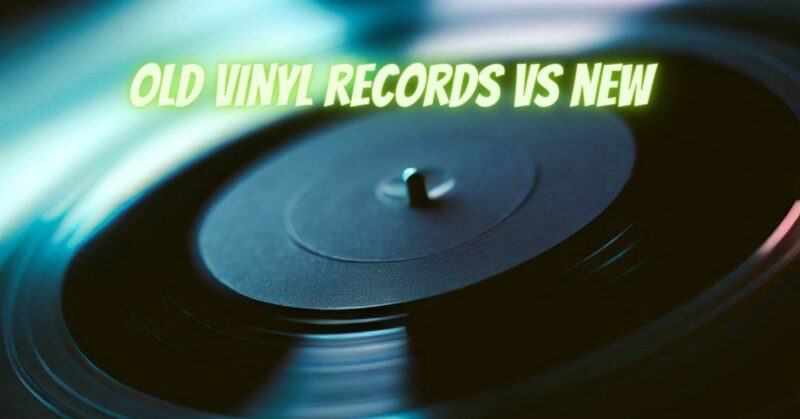The allure of vinyl records transcends generations, captivating both seasoned audiophiles and newcomers to the analog world. As vinyl continues to make a remarkable comeback, collectors and music enthusiasts often ponder the differences between old and new vinyl records. In this informative article, we explore the key distinctions between old and new vinyl, considering factors such as nostalgia, sound quality, and the overall vinyl experience.
Nostalgia and Historical Significance:
Old vinyl records hold a special place in the hearts of collectors and music lovers. They carry the nostalgic charm of bygone eras, representing a significant piece of musical history. For some, the warmth of the crackling sound and the tactile experience of handling vintage vinyl offer a sentimental connection to the past.
New vinyl records, on the other hand, are a testament to the vinyl revival, bringing back the ritual of album listening for a modern audience. While they lack the historical significance of old records, they carry the excitement of exploring contemporary music in an analog format.
Sound Quality and Vinyl Pressing Techniques:
One of the key considerations for audiophiles is sound quality. The pressing techniques used for old and new vinyl records can impact their sonic characteristics.
Old Vinyl Records:
Old vinyl records were predominantly pressed during the height of vinyl’s popularity in the mid-20th century. The quality of sound reproduction from old records can vary significantly, depending on factors such as the original mastering, manufacturing process, and the condition of the record.
Vintage vinyl enthusiasts often value the “vinyl sound,” which includes the subtle imperfections and unique character of each pressing. While some old records may exhibit surface noise or slight distortions, these elements are often embraced as part of the vinyl experience.
New Vinyl Records:
With the resurgence of vinyl, modern pressing techniques have improved significantly. New vinyl records are often manufactured with higher precision and better quality control. High-fidelity mastering and improved vinyl formulations contribute to cleaner sound reproduction with reduced surface noise.
While some audiophiles argue that new vinyl may lack the character of old records, advancements in pressing technology have allowed for cleaner and more accurate audio reproduction. New records can deliver a more faithful representation of the music as it was intended.
Availability and Rarity:
Old vinyl records can hold significant value due to their rarity and historical significance. Collectors often seek out original pressings and limited editions of iconic albums, driving up demand and prices in the collector’s market.
New vinyl records, while more readily available, can also include limited edition releases and colored vinyl variants that cater to collectors’ interests.
The Vinyl Experience:
Ultimately, the vinyl experience transcends the distinctions between old and new records. The act of carefully selecting a record, placing it on the turntable, and delicately lowering the stylus is an immersive and ritualistic experience that appeals to vinyl enthusiasts of all ages.
Both old and new vinyl records contribute to this timeless allure, offering listeners the chance to indulge in the captivating world of analog music and the joy of collecting and curating their personal vinyl journey.
In conclusion, old and new vinyl records each possess their unique charm and appeal. Old vinyl carries historical significance and nostalgic value, while new vinyl showcases advancements in pressing technology and improved sound quality. Ultimately, the vinyl experience remains a personal and emotive journey, where the magic of analog music unites generations and celebrates the timeless enchantment of vinyl. Whether you’re drawn to the vintage warmth of old records or embrace the fidelity of new releases, the world of vinyl offers a delightful and captivating musical adventure. Happy spinning!


